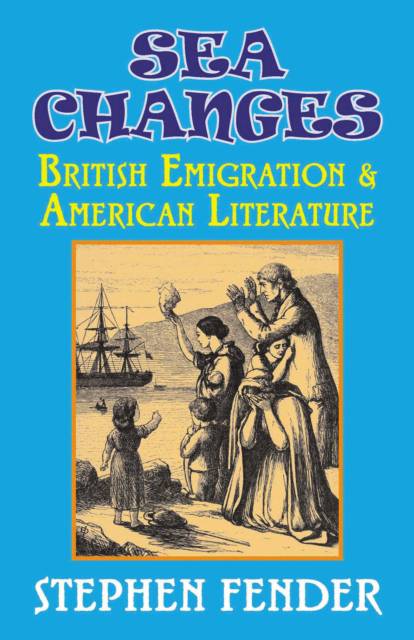
- Afhalen na 1 uur in een winkel met voorraad
- Gratis thuislevering in België vanaf € 30
- Ruim aanbod met 7 miljoen producten
- Afhalen na 1 uur in een winkel met voorraad
- Gratis thuislevering in België vanaf € 30
- Ruim aanbod met 7 miljoen producten
Zoeken
€ 88,95
+ 177 punten
Uitvoering
Omschrijving
This acclaimed landmark work - in this substantially revised second edition - is a key study of the American cultural experience. It examines the formation of an American personal and national identity through the experience of emigration. It asks what was the 'American difference', and what constitutes the American character. It explores in detail the crucial influence of emigration from Europe. It explores American readiness to change, to break with the past, and its faith in future possibilities. Every one of these supposed qualities is traced by Professor Fender to the psychology of emigration. As a new nation, America had to create and define itself. As the rebellious child of a distant but powerful parent America had to struggle against a metropolitan center with which it shared a language and a legal system, but it strenuously defined itself differently. This work is about the power of American ideology and how it unlocked the creative potential in the lives and writings for 'ordinary' people. It is a work like no other. It says much that is original on writers such as Cooper, Jefferson, Thoreau, Hawthorne, Dreiser and Will Cather, among others. Professor Fender has also examined many accounts of ordinary people through diaries, letters and contemporary documents. The book examines how innovations in structures of life, government and writing entailed key cultural themes. It argues that the rhetoric in which emigration was promoted, defended and attacked became the exhilarations and the anxieties of the American difference. American literature thus returns repeatedly to narratives of captivity, adolescence and initiation as shown in its distinctive literary forms.
Specificaties
Betrokkenen
- Auteur(s):
- Uitgeverij:
Inhoud
- Taal:
- Engels
Eigenschappen
- Productcode (EAN):
- 9781911204862
- Verschijningsdatum:
- 26/07/2019
- Uitvoering:
- Paperback
- Formaat:
- Trade paperback (VS)
- Afmetingen:
- 170 mm x 244 mm
- Gewicht:
- 349 g

Alleen bij Standaard Boekhandel
+ 177 punten op je klantenkaart van Standaard Boekhandel
Beoordelingen
We publiceren alleen reviews die voldoen aan de voorwaarden voor reviews. Bekijk onze voorwaarden voor reviews.







